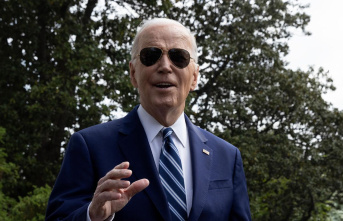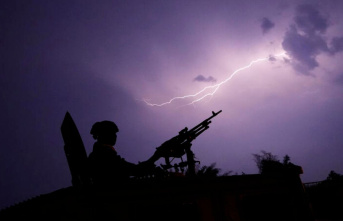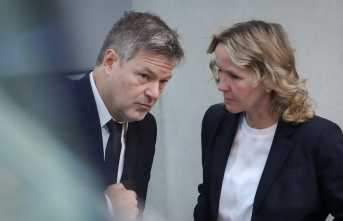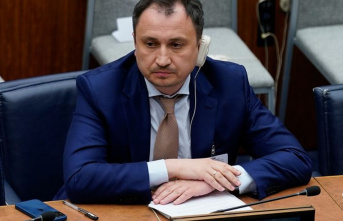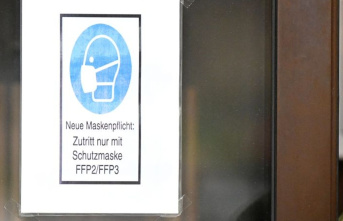Eight minutes. Liz Truss couldn't stand it any longer in front of the journalists in Westminster when she announced her turnaround in tax policy and the change at the top of the Treasury.
The appearance on Friday in London's Downing Street seemed awkward and unreasonable. Shortly before, the prime minister had fired her finance minister, Kwasi Kwarteng, after the two's tax plans collapsed in the face of reality. Former Secretary of State and Health Jeremy Hunt will now take his post.
But it is questionable whether the head of government can survive the crisis. Truss on Friday recouped the corporate tax cut it previously announced as the centerpiece of its pro-growth agenda. This should bring 18 billion pounds (about 20.7 billion euros) into the coffers of the Treasury. It is already the second course correction after the government called off the abolition of the top tax rate. But that still leaves a huge hole of around £25 billion in her budget, which she herself tore up through far-reaching tax breaks.
Truss doesn't want to give up
But Truss was anything but insightful. She insisted she was on the right path. Parts of their so-called mini-budget were "more extensive" and came "quicker" than the markets had expected, Truss said. She added: "We must act now to convince the markets of our fiscal discipline."
Jeremy Hunt, who has many years of government experience, will undoubtedly contribute to this. However, critics have pointed out that he himself promised even bigger tax breaks when he applied to succeed Johnson in the summer.
The problem: Investors had simply lost confidence in the British government. The result was that both the pound price plummeted in relation to the dollar and the yield on government bonds rose. That means the government has to pay more to borrow money on the capital market. This in turn accelerated the rise in interest rates on real estate loans. The central bank was forced to buy bonds with 19 billion pounds to stop the trend.
The Tories are rumbling
It was initially not apparent that Truss could have regained the confidence of the financial markets with her hesitant appearance on Downing Street. On the contrary, bond yields rose again. A sign that the turnaround was not enough for investors.
If it stays that way, things should soon get tight for Truss. The Daily Mail headlined Saturday: "How much more can she (and can we) take?" There are already rumblings in the Tory party. Sky News reporter Beth Rigby quoted an inside source as saying a significant number of letters had been received by the chair of the so-called 1922 Committee. The parliamentary group is the mood barometer for whether a prime minister still has the trust of his fellow MPs and could possibly force Truss to resign.
Should Truss be ousted, Britain would soon have its fifth prime minister in six years. The expectation is that an early election will then be inevitable, because Truss does not have a mandate of his own. This is actually a red rag for the Conservatives, because the opposition Labor Party leads in some polls by more than 30 points.


